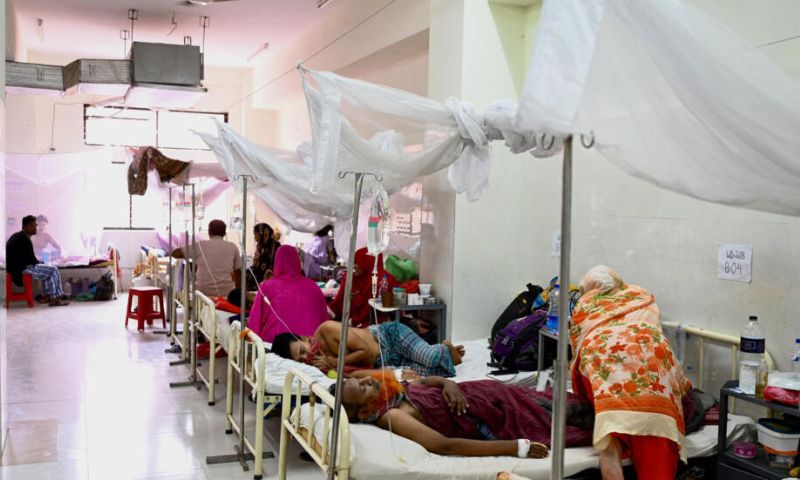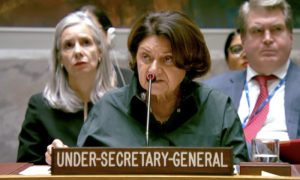DHAKA: In the crowded fever ward in Bangladesh’s Mugda hospital, every bed is taken, as the nation struggles in the brink of its deadliest dengue outbreak, Western media reported on Thursday.
More than one thousand people have died this year in the country’s worst recorded spate of the mosquito-borne illness, which scientists say is increasing in frequency due to climate change.
In the worst cases of dengue, intense viral fevers trigger bleeding, internally or from the nose and mouth.
The Mugda Medical College and Hospital in Dhaka is an important battleground against the outbreak, with the flood-prone South Asian country a fertile ground for mosquitoes that breed in stagnant water.
A record 1,030 people have died in Bangladesh this year, with over 210,000 cases confirmed by hospitals. The data dwarf the previous record in 2022, when 281 died, according to AFP.
Mohammad Niamatuzzaman, Hospital director, said medics were in non-stop crisis mode, bringing in gynecology, kidney and heart specialists to aid overwhelmed general medics.
Niamatuzzaman said that it is an emergency, but a long-lasting one. The state-run centre registered 158 dengue deaths this year, five times its toll in 2022.
Three floors of the ten-storey hospital have been set aside for dengue, supporting more than two hundred patients.
Overall, the 400-bed hospital is treating nearly one thousand patients, and thousands more as outpatients.
Hospital treatment is free, but families have to buy many of the drugs, or pay for costly private blood tests to bypass the backlog.
At Mugda hospital, a quarter of the dengue patients are minors. Overall, children under fifteen make up roughly 10% of the dead.
Dengue in Bangladesh
Bangladesh has registered cases of dengue since the 1960s but documented its first dengue outbreak haemorrhagic fever, a severe and sometimes fatal form of the illness, in 2000.
The World Health Organization (WHO) has warned that dengue and other illnesses caused by mosquito-borne viruses such as chikungunya, Zika, and yellow fever are spreading faster and further due to climate change.
Nearly half of the world’s population is now at risk of dengue, with an estimated one hundred to four hundred million infections occurring each year, and many of those causing only mild disease, according to WHO.
The Aedes mosquito that spreads dengue — identifiable by its white and black stripy legs — breeds in stagnant pools, and cases have slowed as the monsoon rains fade.
But experts warn the risk remains because in the hotter and dryer months, people store water in
























